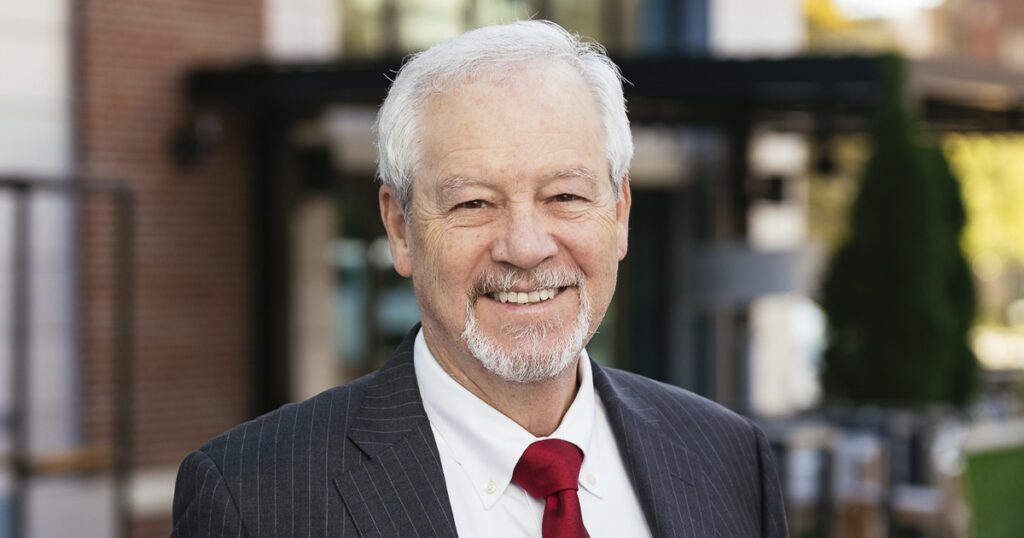The State
COLUMBIA, S.C. — The S.C. Public Service Commission convened Thursday in the first day of hearings into over SCE&G’s electric rates and Virginia-based Dominion Energy’s proposed buyout of the Cayce-based utility.
At stake is who will pay for SCE&G’s failed, $9 billion nuclear project and how big the power bills of about 728,000 SCE&G customers will be in the future.
Thursday’s hearing is the first in what’s expected to be a month-long forum for competing narratives — from customers, regulators and the utility — about who is at fault for the nuclear expansion project’s collapse.
First up to speak is a pair of environmental groups — Friends of the Earth and the Sierra Club — who are expected to argue the project was ill-conceived from the start, given the costs, the risk of nuclear construction and a host of other factors.
They want the PSC to eliminate SCE&G’s entire $27-a-month nuclear surcharge. They also want the utility to refund the $2 billion it already has collected from its customers.
Dominion has proposed refunding SCE&G’s electric customers roughly $1,000 each and cutting SCE&G’s power bills by about $10 a month. But Dominion would retain the right to charge the average SCE&G customer another $4,000 for the unfinished project over the next 20 years.
In an alternate plan filed last week, Dominion said it instead could drop the proposed $1,000 refunds in favor of a bigger, $20-a-month rate cut. That plan would cost SCE&G customers about $1,700 over the next 20 years.
SCE&G’s original plans — which would cost its customers thousands more than that over the next half-century — also are on the table before the PSC.
Below follows a list of updates from the hearing:
▪ The state’s utility watchdog, the Office of Regulatory Staff, kicked off the hearing by asking that all documents related to the project be made public. SCE&G has fought to keep many of those documents — including key testimony from witnesses — confidential.
▪ SCE&G’s attorney, Belton Zeigler, says that “all-or-nothing” approach isn’t appropriate. Some documents are protected by attorney client privilege. Others aren’t relevant, he said. For example, he said, someone could have written a critical email about the project and then change his or her mind. Zeigler says SCE&G would be willing to discuss releasing documents on a case-by-case basis. “If ORS can point to the things they want to release, we will be happy to discuss them.”
▪ Bob Guild, representing environmental groups, says project was a bad idea from the get-go and was mismanaged while SCE&G lied to regulators and the public. Now, Dominion is here to buy SCE&G and charge ratepayers. “It is as if we are confronted by a murder followed by armed robbery.”
▪ Guild frames case as “a story of greed and deception” that focuses on SCE&G’s hubris.
▪ ORS attorney, Matthew Richardson, says he can’t explain to 3rd-grade daughter why SCE&G can charge customers for failed project. “What’s even harder to explain is why the SCANA shareholder should get a profit out of this and why the executives should get bonuses paid by ratepayers.” Richardson argues SCE&G estimated in early 2015 that its project was going to cost far more and last years longer than contractors were saying. He says SCE&G ignored its own analysis and gave regulators the contractors’ unrealistic numbers.. “SCCE&G just didn’t come clean about the true schedule and cost,” in order to retain tax credits and continue revised rates.
▪ SCE&G customer William Dowdey says, “SCE&G did not know how to fabricate nuclear reactors, but they did know how to fabricate numbers and dates.” Dowdey argues the utility knowing submitted false information to the public and the commission that led to higher rates for customer. He says he does not oppose a merger, so long as the combination recognizes and mitigates harm to SCE&G customers “to the maximum extent possible.” Says Dominion’s “payday loan” offer of a roughly $1,000 refund is “unacceptable.” Dowdey adds Dominion has advertised its $1,000 partial nuclear refund by saying, “‘That’s a lot of groceries.’ No, that’s a lot of baloney.”
▪ Frank Knapp, with the S.C. Small Business Chamber of Commerce, says ratepayers and small businesses don’t want to pay any more for the failed project. They also want their $2 billion back from SCE&G. Knapp says he’s skeptical of SCE&G’s threats to file for bankruptcy.
▪ Attorney for S.C. House Speaker Jay Lucas, Michael Anzelmo, speaks about the rate cut passed this summer by the General Assembly, arguing in favor of keeping that rate permanent, noting it’s survived several court challenges by the utilities. That rate is similar to what Dominion recently offered. Read more about that here.
▪ Attorney Will Cleveland for S.C. Coastal Conservation League and Southern Alliance for Clean Energy raises concerns about Dominion merger and how they would view clean energy. Says the group plans to present testimony from a former Colorado utilities commission chairman who will testify the merger does not meet the state’s energy policy goals of having a comprehensive energy plan that includes renewable energy and energy efficiency. “Clean energy is cheap energy, but we need to make sure policies are in place to achieve that,” he says.
▪ AARP utility consultant John Coffman says AARP opposes “prepayment schemes” like the BLRA. “We find that when they use their own money, they tend to do a pretty good job. … We found the BLRA money was not handled well. (SCE&G) did not act as good stewards of ratepayer money.”
▪ SC Solicitor General Bob Cook, representing S.C. Attorney General Alan Wilson, says SCE&G customers “deserved to be treated fairly and constitutionally by the BLRA, and they were not. Instead, the BLRA turns out lights and slams the door shut on ratepayers.” Cook notes Circuit Judge John Hayes is expected to issue a ruling that at least part of the BLRA is unconstitutional. Read more here.
▪ Santee Cooper attorney William Hubbard says PSC must OK Dominion deal only if it meets the “public interest”’ “It is beyond doubt that “public interest’” impacts Santee Cooper and its customers.” The utility wants a $351 million payout to Santee Cooper if Dominion deal is approved. Background here.
▪ SCE&G outside attorney David Balser says the utility “is very sorry for the impact” that it’s decision to abandon the reactors “is having on our customers, the commission and the state,” but stresses “no one disputes that abandonment is the right decision.” And argues ORS “concocted a false narrative” that SCE&G concealed evidence and that “ORS knew everything about this project.” Balser also deflects blame to the project’s collapse to lead contractor Westinghouse, which declared bankruptcy, and Santee Cooper for quitting the project.
▪ A Dominion attorney talks about the merits of its two offers to purchase SCANA. On the latest, which would cut about $21 of SCE&G’s $27-a-month nuclear surcharge. “It reduces a $5 billion problem to $6 on their bill,” he says. Says Dominion looks forward to putting the nuclear story to bed and “looks forward to a brighter future for SCE&G.” And with that, we break for lunch. Back at 1:30 p.m.
▪ Here’s our latest update/recap from this morning’s opening statements: SCE&G says state agency concocted ‘false narrative’ to save face after nuclear failure
▪ Friends of the Earth and Sierra Club call Mark Cooper, director of energy and research with the Consumer Federation of America, as first witness in PSC hearing over electric rates and Dominion merger. Cooper previously testified before the commission in 2012 arguing the nuclear project was imprudent and uneconomic..
▪ Cooper says recently disclosed evidence of chaos in the management of reactor construction, as well as the failure of utilities to fully inform regulators of those known problems, provide clear grounds for protecting ratepayers from imprudently incurred project costs.
▪ Asked of SCE&G contention ORS knew everything about the project, Cooper says, “The notion, ‘Well, you could have found this out’ … That’s not the way it works, because they own the data. And they made it clear, until recently, they intended to own it privately.” Says “the utility was not forthcoming.”
▪ Cooper tells commission: “Westinghouse went bankrupt because they couldn’t do it … They were unwilling to bet the farm on the AP1000. They couldn’t figure out when they would finish the darn thing anyway. … It was pandemonium.”
Commission takes quick break.
▪ ORS tells PSC its first witness Ken Browne, a senior engineer who worked on the $9 billion V.C. Summer Nuclear Station expansion project, is out of state and unavailable. ORS moves to enter unredacted deposition from Carlette Walker, former corporate officer for SSCE&G, but will not appear. Matthew Richardson, attorney for ORS, says Walker is not available.
▪ ORS calls Santee Cooper corporate secretary Elizabeth Warner as a witness.
▪ ORS and SCE&G go back and forth on ORS request that documents related to the project from Santee Cooper be made public. SCE&G has fought to keep those documents confidential, arguing they include hearsay and opinion. ORS argues they’re public records from a public agency.
▪ ORS calls engineering consultant Gary C. Jones to testify before the PSC in nuclear hearing.
▪ PSC adjourns until tomorrow at 9 a.m. following lengthy back and forth among ORS, Friends of the Earth and SCE&G over requests make documents related to the project public.






